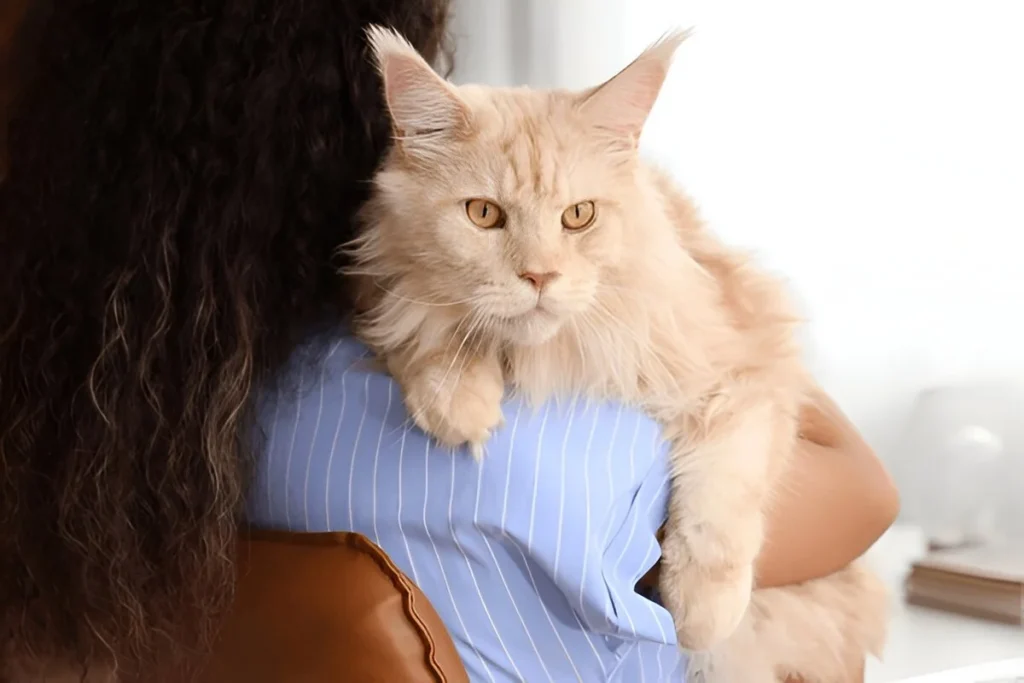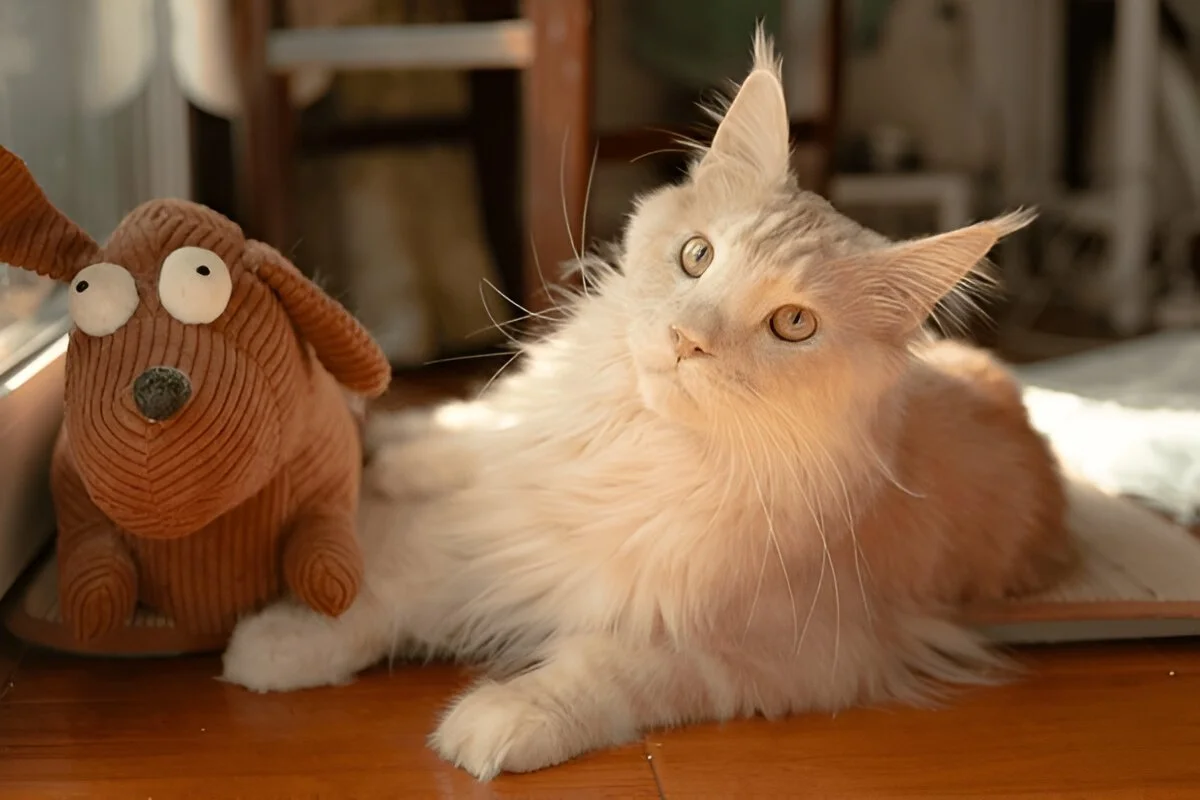Why do some cats meow more than others? It is a question asked by many cat owners and enthusiasts. Meowing is the most common way in which cats communicate with humans, and there can be a large degree of variability in how much cats meow.
Some cats can seem quiet and shy, and others can be very loud and vocal. Knowing and understanding why some cats meow more than others can help owners better able to meet their cats’ needs and behaviors.
I believe it is important to discuss the reasons for variation in meowing behavior, including breed, personality, environment, human dynamics, and health factors.
This blog will summarize some of the major reasons behind cats and their meowing behavior.
- Why Do Cats Meow in the First Place?
- What do Different Types of Meows Mean?
- Does Cat Breed and Personality matter?
- How Do People Influence This Behavior?
- What About Their Environment?
- Can Health Issues Cause Meowing?
- Do We Really Understand What Cats Are Saying?
- Tips for Dealing with a Chatty Cat
- Final Thoughts
Why Do Cats Meow in the First Place?
Cats certainly do not meow just for fun. They do, in fact, the majority readjust meows, as in a one-way conversation with humans, not a two-way conversation with another cat.
Feral cats meow almost never; however, domestic cats have learned that meowing commands our attention. They might just be saying “hello,” seeking food, or letting us know something’s not right.
My own Maine Coon cat, Max, talks to me every single morning, non-stop, in an effort to get me to fill his bowl – he has trained me correctly!
What do Different Types of Meows Mean?
Cats have different meows that each have their own significance:
Short meows: greeting or recognition.
Repeated meows: excitement or asking for something (e.g., food).
Long or low-pitched meows: urgency or complaining.
Yowling: distress, mating calls, or territorial behaviors.
[Source]
Does Cat Breed and Personality Matter?
Yes! Many breeds are more or less vocal; for example Siamese and Maine Coons are some of the most vocal breeds of cats. Even in the same breed, personalities can vary widely.
For example, I personally have two Maine Coons, Max and Luna, at my house. They share the same home, food, and living space. Yet, Max is vocal and does not stop talking to me, while Luna is generally quiet and reserved.
So, if you’ll ask me, why do some cats meow more than others?
I would say, typically, this is because of their personalities and genetics.

RELATED POSTS:
Black Maine Coon Cats: Price, Popularity & Rare Beauty Explained
How Long Do Maine Coon Cats Live?
What Makes a Maine Coon Cat Different
How Do People Influence This Behavior?
Here’s something amusing: cats naturally figure out pretty quickly that they can get results when they meow. If you give your cat food or snuggles each time they meow, you may have unintentionally encouraged this behavior.
I realized I was doing this with Max—every time he meowed, I’d check on him, so now he meows even more! In some cases, it’s because we conditioned them.
What About Their Environment?
Cats can be bored or lonely, so when they have been alone all day and you return home, they may meow more based on some other perceived lost opportunities.
Cats are creatures of habit, and they often meow more when their environment is “changed” or “updated.”
Examples of changes you might see in and around your home are a new dwelling (moved), new pets moving in, or employees rotating furniture.
Cats may meow to tell us that they feel stressed out or need comforting.
Can Health Issues Cause Meowing?
Yes, a dramatic, spontaneous change in the amount that your cat meows can be a sign that something is not right with their health.
Any illness or pain your cat is experiencing, in addition to natural aging, may exacerbate any tendency towards meowing.
If your once quiet cat becomes a vocal meow machine, then consulting with a veterinarian is a sensible course of action.
Do We Really Understand What Cats Are Saying?
Here’s the reality: we are not nearly as good interpreters of our cats’ meows as we believe we are. Research suggests that most people do not have a good idea of what their cat might want, simply based on analyzing their cat’s meows alone.
We also misinterpret their requesting signals quite a bit, which is why it is essential to look at their overall body language as well (tail position, ear movement, etc.) when attempting to figure out what they want.
Tips for Dealing with a Chatty Cat
- Provide ample playtime and attention to your cat.
- Maintain a daily routine – cats value structure and predictability.
- Don’t reward excessive meowing on cue by offering a cat treats every time.
- Monitor for sudden shifts in meowing with your cat’s behavior and call your veterinarian if needed.
ALSO READ
The Blue Tortie Maine Coon: A Living Garden Fairy
The Orange Maine Coon Cats: Are They Truly Rare?
Why Does My Cat Lay on My Chest?
Final Thoughts
Seriously, what makes some cats meow more than others? Sometimes a combination of personality, breed, reinforcement, environments, and at times health, makes your kitty less chatty than other owners’ kitties.
Every cat is different. My Maine Coons believe it is all part of the experience of living together, to listen (and at times not listen) to their meow.
If you, too, are perplexed by what your cat is saying, you are not alone – most of us are still figuring out what those meows really mean.
References:
- https://pmc.ncbi.nlm.nih.gov/articles/PMC7000907/
- https://www.purina.com/articles/cat/behavior/understanding-cats/why-do-cats-meow
- https://thedishonscience.stanford.edu/articles/feline-vocalization-its-the-cats-meow

